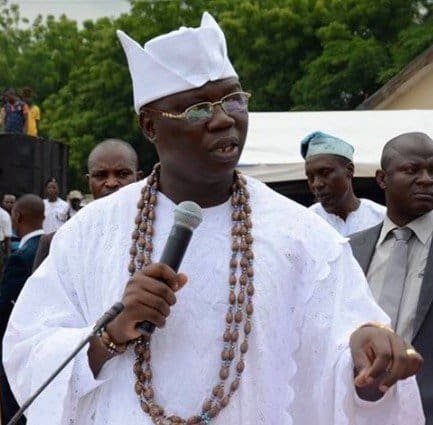
Aare Ona Kakanfo of Yorubaland, Iba Gani Adams, has mourned the death of the National Publicity Secretary of the pan-Yoruba socio-cultural group, Afenifere, Yinka Odumakin.
Naija News reports that Odumakin died on Saturday at age 56.
He died at the Lagos State University Teaching Hospital after a brief illness.
The political activist reportedly died of complications from COVID-19.
He was said to have been battling underlying conditions such as diabetes before the COVID-19 attack.
Reacting in a statement titled: ‘Odumakin: Yoruba has lost a gem, and dependable ally’, by his Special Assistant on Media, Kehinde Aderemi, Adams said his demise was one death too many.
He described the late activist as a true Yoruba son, a committed fellow, and the voice of the people, especially, the downtrodden.
Adams said: “We’ll all miss his voice. We’ll miss his commitment, we’ll miss is bravery because the late Yinka Odumakin’s fearless image loomed larger than what we can easily forget in a hurry.
“He was a phenomenon that spoke truth to power. He cut a picture of an all-rounder, a media personage, an analyst and public commentator that had warmed himself to the hearts of many people.
“His exit had left a big vacuum in the social and political milieu and Nigerians will always remember him for who he was because in his life, the late Odumakin was truly one of the few gifted soul of our race.
“The extent of the shocking news for me has been inexplicable. It will take a very long time for me to accept the realities of his death
“We were in the struggle together, we shared so many memories together and I was very close to the family, so for me, it was a personal loss and I wish my sister, his wife, Dr. Joe Okei-Odumakin and the deceased relatives well, especially at this trying moments.”
“For the Yoruba nation, and Afenifere as a whole, Odumakin’s imprints will always be in the book of history, but as much as his death was so rude and shocking, we are consoled that the man died, though, very young, he will be remembered for his invaluable contributions to the development of Nigeria and the Yoruba nation in particular.”


